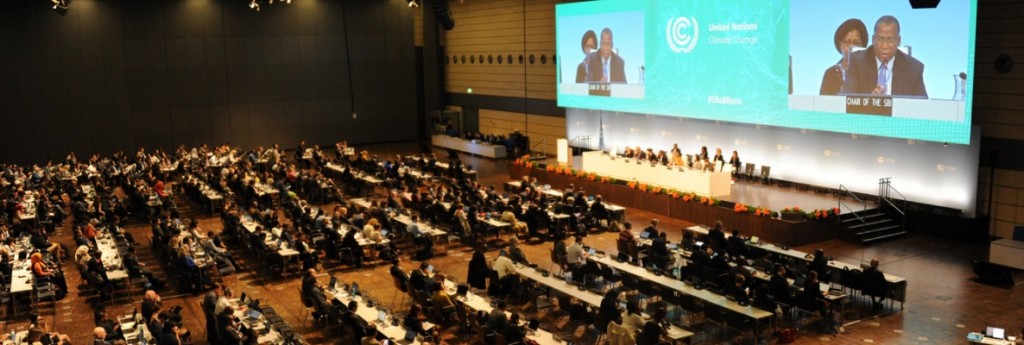By John Leo Algo
Asia Pacific leaders must accelerate clean growth and recognize the need to shift away from coal in push against climate change at the Asia-Pacific Climate Week (Sept. 2-6) in Bangkok, Thailand.
Ovais Sarmad, Deputy Executive Secretary of United Nations Framework Convention on Climate Change (UNFCCC), said on Tuesday at a press conference that moving to renewable energy and getting away from coal and other fossil fuels is economically beneficial.
Ovais statement was echoed by Stefanos Fotiou, Director of the Environment and Development Division of the UN Economic and Social Commission for Asia Program (UNESCAP), saying that electricity from renewables such as solar and wind energy have become cheaper than fossil fuels in many nations in the region, including China and India.
“We need to make the economic case. It’s there, but we need to make it more vocal, more vibrant, and more known. It should not only be expert’s knowledge that solar is cheaper than coal now,” Fotiou said.
Ever since, climate finance has been the sticky points at the UN climate talks as well as at the upcoming Asia-Pacific Climate Week (APCW). Most of the climate pledges countries in Asia-Pacific that are Parties to the 2015 Paris Agreement have made, as stated in their Nationally Determined Contributions (NDCs) are conditional, requiring the financial and technological support of industrialized nations to address climate change impacts.
This is especially crucial for developing renewable energy sources. The Asia-Pacific region has accounted for nearly half of the world’s greenhouse gas emissions in recent years due to rapid economic growth and development. Two nations, China and India, are responsible for more than one-third of the world’s emissions.
The continued dependency on coal by Asian countries threatens to hamper global climate change mitigation efforts. Southeast Asia was the only region in the world to have its power generation become more dependent on coal last year, with more coal-fired power plants slated to be built in nations such as the Philippines. China, India, Japan, and South Korea are among the world’s biggest coal consumers, while Australia and India are among the largest producers.
Fotiou noted that to usher in a just transition to renewables in the region, the private sector, especially young entrepreneurs, needs to be provided with incentives and other economic benefits to trigger domestic resource mobilization. The externalities of coal, especially its contribution to the poor air quality and associated impacts on human health, must also be included in assessing the viability of such facilities.
“There is a long way that needs to be taken forward, but I am confident that more leaders, more from the private sector, and more stakeholders recognize the benefits of climate action in the Asia-Pacific,” he added.
Another intervention involves finalizing the rules for voluntary market mechanisms under the Paris Agreement, an issue that was left unresolved at last year’s climate talks in Katowice, Poland and would be decided at the next negotiations in Santiago, Chile in December.
The weak public pressure in the Asia-Pacific is an indicator to focus more on climate justice, per Fotiou. While climate strikes in Europe have influenced the shift to cleaner energy sources, the lack of such a strong call in the region has not only led to a slower transition, but it might also increase the long-term vulnerability of poor communities.
“The impacts of climate change in many countries in the regions right now are mostly felt by the poor. It’s the poor who don’t have a direct saying in the design of climate action,” he said.
Despite the many challenges facing the Asia-Pacific, Sarmad remains confident in the progress of climate action in the region, which will be highlighted in the APCW.
“The tide is turning, and we will make sure it will be emphasized even more,” Sarmad said.
In his recent State of the Nation Address, President Rodrigo Duterte called for fast-tracking the transition from coal to renewables.
“The President’s policy pronouncement comes in a crucial time when we are finalizing our country’s first NDC, our commitment under the Paris Agreement, which we intend to submit by the end of this year,” Sec. Emmanuel de Guzman of the Climate Change Commission (CCC) said in a statement.
Aside from finalizing the NDC, the CCC has been working closely with key government agencies and civil society in defining targets and pathways for the country’s low-carbon development under the Philippine Development Plan and Ambisyon Natin, following a whole-of-government-and-society efforts to transition our economic sectors into a green economy.
John Leo Algo is the Program Manager, Climate Action for Sustainability Initiative (KASALI)
Latest posts by EnviroNewsph (see all)
- Global fund aimed at protecting nature and accelerate investment in conservation, launched in Canada - August 25, 2023
- Why ‘loss and damage’ is the most bitterly fought-over issue at COP27 climate talks? - November 18, 2022
- U.S. hands over P2.3M in equipment and wildALERT system to PH to protect wildlife - December 16, 2020

